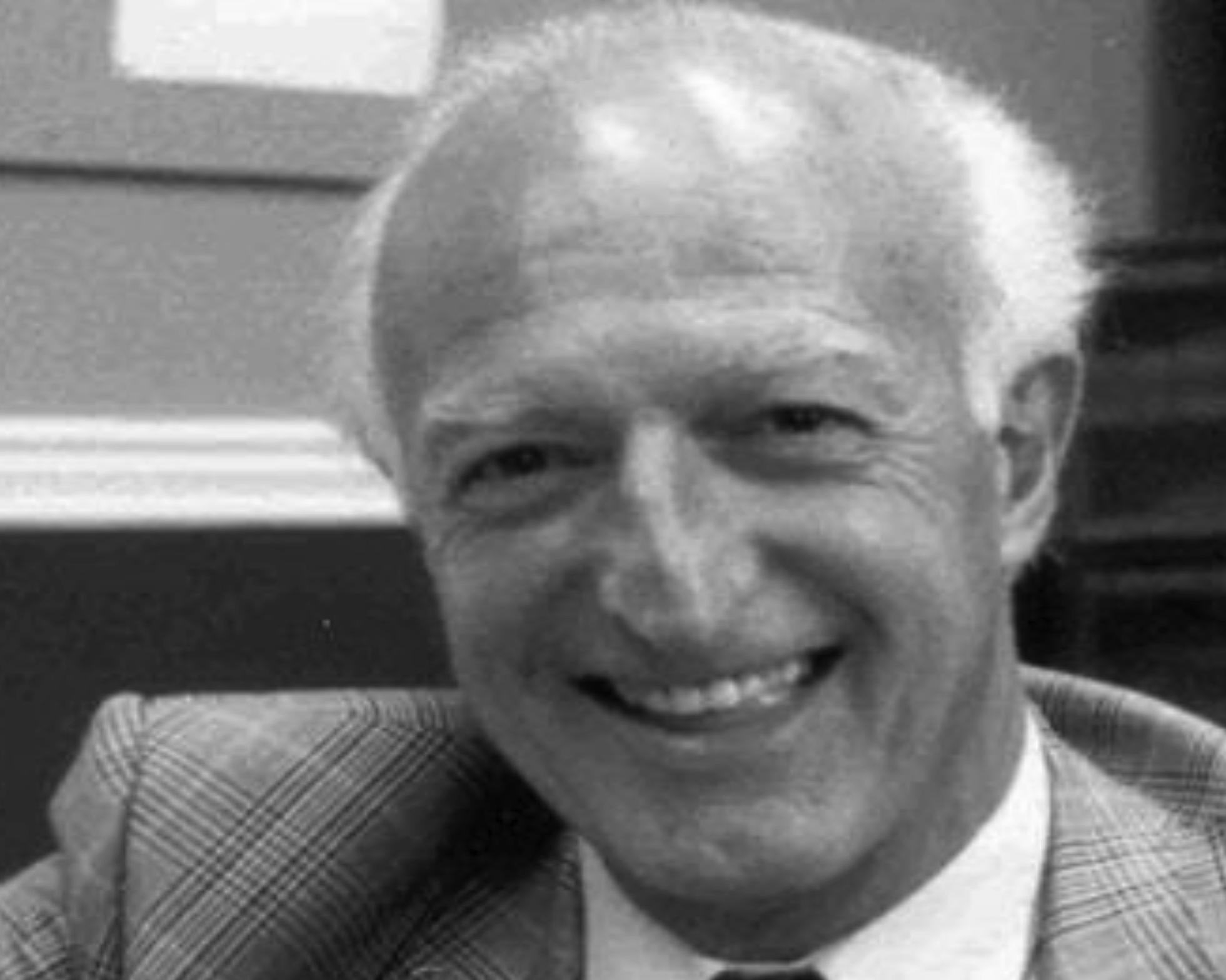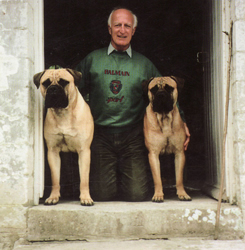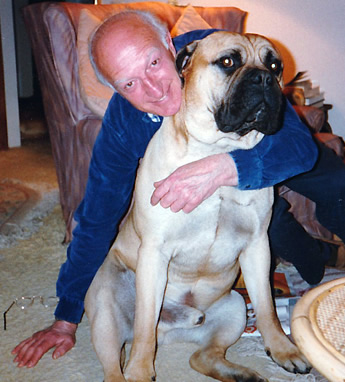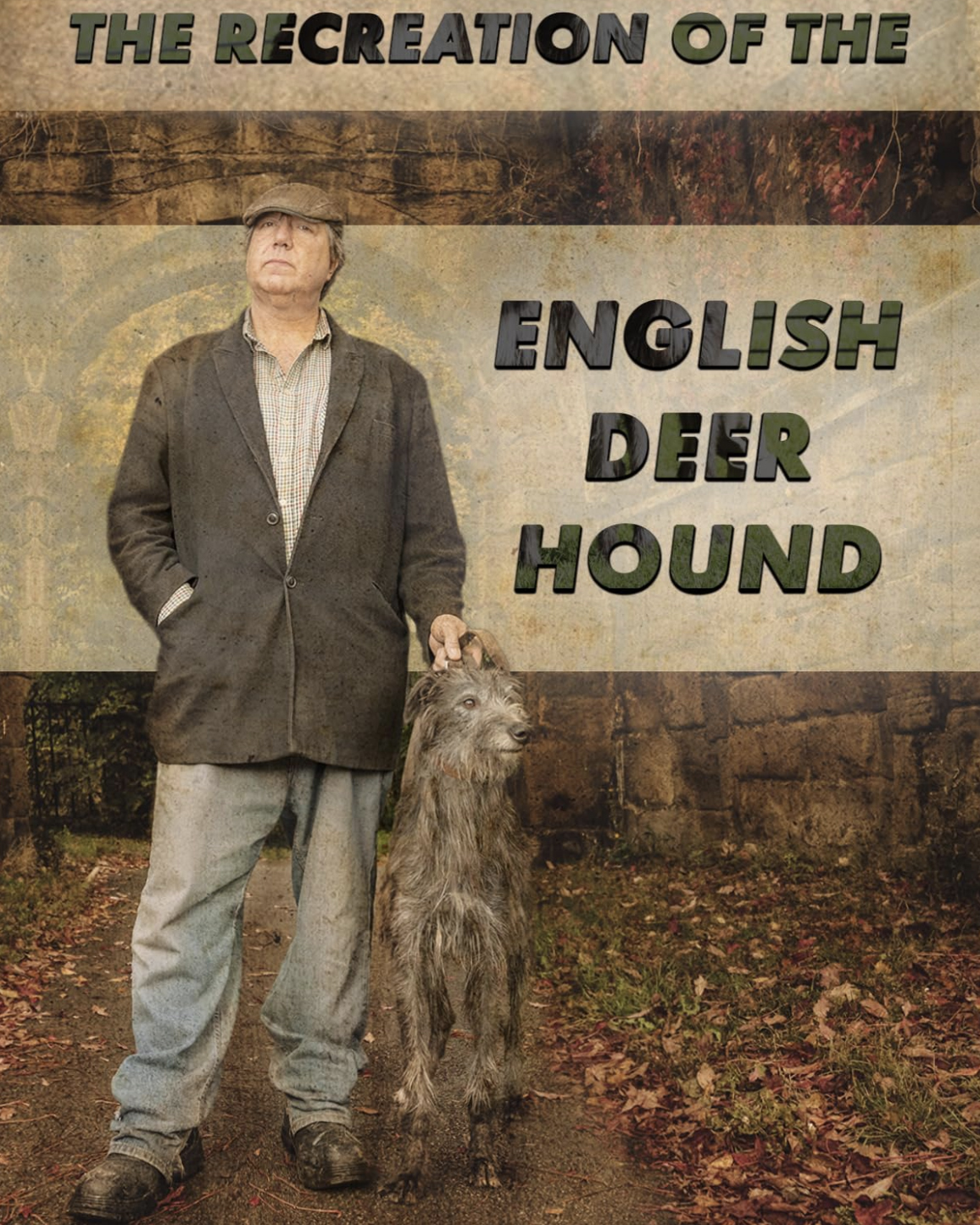Tribute to David Hancock MBE - read by Jackie Sykes of English
Deerhounds.
The following tribute to David was read at Highgate Greyhound Stadium, to honour the creation
of the David Hancock Trophy and its inaugural award to the winner of the English Deerhound
Race, perfectly sums up the impact of Davids work and the legacy he has left for us all to
cherish.
The trophy was presented by his beloved wife Susan Hancock, and the Army Benevolent Fund,
benefactors from donations at Davids funeral, were able to raise over a thousand pounds for the
cause that he held so close.
“Ladies and gentlemen
Welcome to Highgate and thank you to everyone for making the journey despite the numerous barriers in our
way during
these strange times.
We are here today to remember arguably the greatest canine expert, dog historian and our very own English
Deerhound
champion, Colonel David Hancock MBE.
To set the scene, David’s early years were spent learning about a variety of animals. As a young man,
intending to become
a vet, he was mentored by an expert on the conformation, structure and soundness of the canine form which
fired his
interest and gave him an appetite for his future passion.
A few years after this, following in his fathers’ footsteps, he began his army career, which consisted of
combating numerous,
widely documented death-defying episodes that would challenge even the most talented 007 agent.
One example when serving in a turbulent Northern Ireland, David’s ability to commit to memory the landscape,
lifestyle,
intelligence, and political connections of the adversaries, were a life saver for him and his company which
earned him his
MBE.
Overall, during these army years, he spent his time in a total of 22 countries across the globe, which gave
him the unique
opportunity and insight to study dogs, especially sighthounds, in their natural habitat and in the greatest
of detail.
Over time his persistent record of these hounds led to one of the greatest canine library compilations ever
composed,
consisting of over 5000 photos and articles, which were subsequently used by national and international
magazines and film
companies.
When the time came to leave the Army in 1983, and after numerous attempts to bring him to a demise, David
was able to
pursue his childhood dream and really focus on his passion for animals and boy did he do this in style!
Not one to shy away from responsibility….
For 14 years he oversaw a Rare Breeds Centre, conserving and breeding rare breeds of cattle, sheep, pigs,
goats, poultry
and horses, breeding and exhibiting the stock.
He was responsible for not one, not two, not three BUT four different museums and an art gallery, and
several times
advising the Natural History Museum on their canine displays.
He was also a Director of Shugbrough Hall and Director of National Trust Estate.
A judge, writer, and fiery defendant of English breeds, his spirit was not only admired but held in the
highest regard as he
worked with and advised those dealing with breeds such as the sporting Lucas Terrier, the Victorian Bulldog,
the Plummer
Terrier and the American Bulldog to name but a few.
As a regular writer for The Countrymans Weekly, not one to hold back, David would defend his position in a
clear and
concise manner that would leave nothing to the readers doubt of his opinion.
A gifted writer and storyteller, and winner of America’s Dog writing Association 2007 and 2009, with a
no-nonsense attitude,
David made his carefully crafted articles challenging and a pleasure to read. His in-depth knowledge of dogs
and their
origins is second to none…but what is his connection to the English Deerhound?
Well after working closely with Dave Platts from 2016 and becoming involved in his lifelong passion for
re-creating a
medieval hunting dog the English Deerhound, I took home the book “The World of the Lurcher” written by
Colonel David
Hancock.
But to be honest the book sat there for a few weeks, because anyone that knows Dave Platts is aware that he
always has a
list of jobs for you!!
Anyway, I managed to check out the book, and there it was in black and white….page 89, published in 2010
“The Loss of
the English Deerhound”
That really made me look twice. Here was a sighthound specialist that was lamenting the loss of an English
breed.
But it wasn’t actually lost.
So, with trepidation, and as a newcomer to this world, I took the plunge and emailed Colonel Hancock and
asked about the
article in the book-never expecting a reply.
And to my surprise he answered very quickly, inviting myself and Dave to meet him to discuss the dogs.
Never one to miss an opportunity Mr Platts commandeered a few of us and we all travelled down to meet
Colonel Hancock.
The whole event was a blur, no sooner where we there than 2 hours had passed, and we were off home fuelled
with
excitement about our adventure.
The most magical part for me was getting home to an email from Colonel Hancock, totally enthused by the
meeting, buzzing
with ideas and him sending an English Deerhound breed standard.
Things really took off from there. Filming in a beautiful medieval setting with Colonel Hancock and the
English Deerhounds
was fantastic.
His passion for dogs was as keen as it ever was, and we conversed by email on a regular basis.
I distinctly remember being chastised for daring to send an English Deerhound to America-Colonel Hancock
was
quite cross
with me!
So I know that I speak for everyone who is part of the English Deerhound network when I say…..
Let’s hope that Colonel Hancock’s work is kept safe for generations to come as his legacy is too valuable to
be lost.”
Col David Hancock, born September 7 1932, died March 13 2021
By Telegraph Obituaries 6 April 2021 • 7:00am

Colonel David Hancock, who has died aged 88, had an exceptionally varied Army career and several narrow
escapes
from serious injury or worse.
In 1968 he assumed command of a rifle company of the newly designated 1st Battalion The Light Infantry in
Northern
Ireland. The unit was first deployed in the Mourne Mountains guarding installations after public utilities
had been
sabotaged.
Despite having a small force and a large area to cover, he built up an encyclopaedic knowledge of its
people, its
traditional routes and hides for smugglers and subversive organisations, and of political and criminal
connections.
After the company moved to Belfast on internal security duties, in the absence of a comprehensive
intelligence plan
he prepared his own. Within a short time, the intelligence far exceeded that from any other part of the
brigade area.
The citation for his appointment as MBE stated: “The results he obtained have been unmatched so far in the
current
emergency.”
David Hancock was born in Bath on September 7 1932. His mother was a seamstress. His father served in a
cavalry
regiment in the First World War; he had been gassed and lost a lung, and died when his son was aged 14.
Young David won a scholarship to the City of Bath Boys School. In 1951, he played for the England Schools
Rugby
side against France and represented the Bath First XV while he was still at school.
After Sandhurst, he was commissioned into the Somerset Light Infantry and, while serving as a platoon
commander
with the 1st Bn during the Malayan Emergency, he was ambushed by terrorists but was unscathed.
Deployed as Bn Intelligence Officer in Cyprus in 1956, his vehicle was blown up on a landmine in the
foothills
of
theTroodos Mountains. Two soldiers were thrown out of the back of the vehicle and gunfire shattered his
windscreen,
but they were all unharmed.
In 1958 he was in Jordan on secondment to 3 Para on operations to support the regime. After the emergency
was
over Hancock, who was something of a practical joker, organised a camel race on the airfield at Amman – to
the
disgust of the RAF.
Convinced that the prank had more life in it, he persuaded the padre that the camel-driver was actually a
sheikh with
officer status and would expect to be entertained at the officers’ mess. The man, gnarled, toothless and not
over-
fragrant, was introduced to the CO, who was not best pleased.
Postings to Germany with the 1st Bn Somerset and Cornwall Light Infantry were followed by attendance at Army
Staff
College and then a spell at HQ 51 Gurkha Brigade on operations in Borneo.
In 1966, Hancock moved to the MoD for two years as General Staff Officer Grade 2. His return from Northern
Ireland
was followed by staff appointments at the MoD and HQ UK Land Forces.
In 1983 David retired from the Army and for the next 14 years was a director of the Shugborough estate in
Staffordshire. There, he reactivated an ambitious regeneration project as well as establishing the Hall and
gardens as
a major tourist attraction with game fairs, concerts, a rare breeds farm and a working dairy. He also helped
to set up
the National Garden Festival at Stoke-on-Trent which was held in 1986 and was opened by the Queen.
As a younger man he had taken part in Arctic expeditions to Iceland and Lapland. In 1987 he took up writing
full time
and was the author of 14 books about breeding dogs back to what they should be to perform the tasks that
they
were
meant to undertake.
David Hancock married, in 1991, Susan Sutcliffe, who survives him with a son and a daughter from an earlier
marriage. Another son and another daughter predeceased him.




